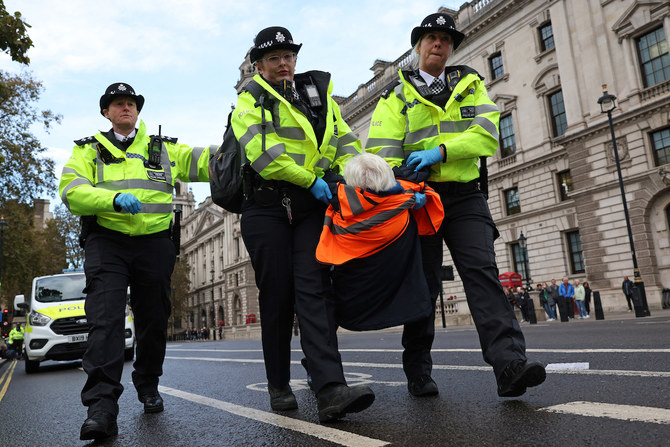
Police in England and Wales have failed to record the racial identity of nearly two-thirds of people referred to the Prevent counter-extremism programme, despite questions over whether it discriminates against minority ethnic groups.
The National Police Chiefs’ Council (NPCC) said details on the race or ethnicity of 33,116 people referred to the scheme over eight years could not be accessed. Government figures show that there were 51,204 Prevent referrals from April 2015 to April 2023.
The findings come after William Shawcross’s much-criticised review of the strategy which places public bodies, including schools and the police, under a legal duty to identify people who may turn to extremism and intervene in their lives before an attack takes place.
Shawcross, who is the independent reviewer of Prevent, concluded that the programme “is not doing enough to counter non-violent Islamist extremism” and “has a double standard when dealing with the extreme rightwing and Islamism”.
Human rights organisations including Amnesty International have claimed that Prevent, which asks police to predict who might commit crimes, has had a racist and discriminatory impact, especially on Muslims in the UK.
The campaign group Rights & Security International (RSI) submitted freedom of information requests to the Home Office, the NPCC and the Met seeking statistics about the race of people referred to Prevent.
After the agencies refused the requests and pointed to one another as potential sources of information, the RSI filed a complaint with the Information Commissioner’s Office [ICO].
In a reply in December, the ICO said the NPCC had explained that “for the data period sought by the requestor ie 2015 to 21/04/2023 (the date of the request), there are 33,116 referrals with no ethnicity recorded”.
“The NPCC advised the commissioner that this request is focused on Prevent referrals broken down by ethnicity and type of concern.
“Ethnicity is not a mandatory field within the Prevent referral, which means that the ethnicity field within the Prevent case management tracker database can be left blank.”
Sarah St Vincent, the executive director of the RSI, said the police’s failure to record ethnicity meant that no one could properly assess if it discriminated against communities.
“Information about people’s race or ethnicity is sensitive data under the law, and sloppy handling of that data is illegal. The police are in the worst of both worlds: they are attaching racial or ethnic labels to people, which creates serious data privacy issues, while doing it so erratically that no one can assess whether Prevent is having a discriminatory impact,” she said.
Carolin Ott, a human rights solicitor at Leigh Day which represents RSI, said: “There is an ongoing debate about the appropriateness of the Prevent programme and its potentially disproportionate impact on minority ethnic groups. Our client considers that the ability to review, analyse and discuss the ethnicity data would make an important contribution to that debate.”
In the year ending 31 March 2023, there were 6,817 referrals to Prevent, an increase of 6.4% compared with the previous year, and the third highest total of referrals since 2015.
The Home Office has been approached for a comment.












